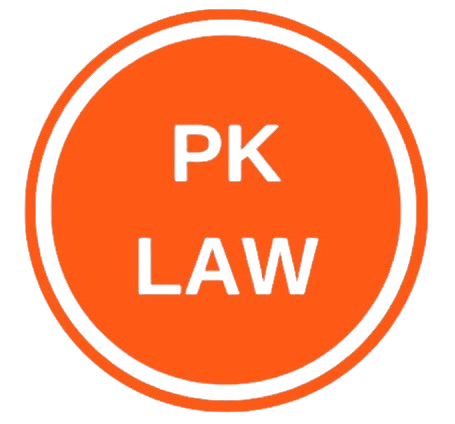
Expert Estate Planning Lawyer Services In Miami - Broward - Palm Beach.
Law Office of Patricia Keyes, P.A. Estate Planning and Elder Law
(954) 233- 0682
info@mypklaw.org
111 N. Pine Island Rd. Suite 203 Plantation, FL 33324
Our focus is on you, your family, and your peace of mind.
We are there with you through every step of life and every layer of protection.
New families
New families
Part of becoming a parent is ensuring the right framework is in place so your family is protected. We help parents put this plan into place for you and your family's peace of mind.
Approaching retirement
Working Professionals
You spent a lifetime working and creating wealth for your family. Now you need to make sure your work and the fruit of your labor is protected.
The Golden Years
Retirement And Beyond
Your golden years should be spent enjoying family and life and not worrying about outliving your money. We can help seniors plan for long-term care and make sure they are protected.

Estate Planning
Wills, Trusts, Powers of Attorney and more
Estate Planning
Estate Planning is simply the process of making sure your assets are protected and that your wishes are documented and followed. Sometimes people make the mistake of thinking that only the very wealthy need to engage in estate planning. This is a costly mistake. Almost everyone needs some form of estate planning. Each case is different because each situation, individual, and family are different. This is why before we do anything - we sit down and talk so we can learn about you, your family, your business, and your goals and how best to protect them.
Parents with young children MUST have a plan in place to protect their children in case something happens to the parents. Although this is unpleasant for young parents to think about - it is their responsibility to make sure their children are taken care of in every situation.
Mine, yours and ours... Blended families are very common in our society. It is extremely important that these families plan to ensure every member of that family is protected.
Estate Planning is about responsibility. It is about documenting your wishes now so that your spouse, your children, your partners, your grandchildren, and your loved ones are taken care of. It does not have to be a scary or unpleasant experience. Believe it or not, the hardest part is making the decision to get it done and once you do, you will feel the relief all of our clients feel because they know they've done the right thing to protect themselves and their loved ones.

Elder Law
Nursing Home, Medicaid, Aging at home, ASSET PROTECTION
No, you do not have to outlive your assets.
We assist families in planning for long term care. One of senior citizen's greatest fears is outliving their money. We help seniors and their families plan to ensure they do not outlive their money, while helping our clients receive the best care they can. It is important to us that we respect client's wishes regarding care, quality of life and end of life decisions. Whether the client wishes to remain at home, relocate to an independent or assisted living facility, or even a nursing home, we are here to help our clients and their families.
We are all living longer and sometimes this means living with chronic or progressive diseases, like dementia, Alzheimer's, or Parkinson's to name a few. It is estimated that about two-thirds of people will need some type of long-term care in their lives. This raises all sorts of questions: How will I pay for an aide or a facility? Will my kids take care of me? Where will I live? Who will make decisions for me if I am incapacitated? What if I do not want to go to a nursing home?
PLANNING FOR THESE DECISIONS AHEAD OF TIME WILL ENSURE THAT YOUR CARE MEETS YOUR WISHES, AND WILL MAKE THIS STRESSFUL SITUATION LESS DIFFICULT FOR YOU AND YOUR LOVED ONES.
There is so much bad information about long term care. I've had prospective clients tell me they thought they had to get divorced, or sell their home, because their spouse needed to go to an assisted living facility or a nursing home. This is not so. There are many things we can do to help you protect your assets and also get you the right care.
Proper planning starts with making sure we have the right advanced directives in place, such as powers of attorney for health and finance, health care surrogates, and living wills. Merely printing out a form is not enough. These documents must be impeccably drafted.
Medicaid Planning - in English
There is A LOT of bad information about Medicaid out there. What happens if a loved one needs a nursing home?
WHAT EXACTLY IS MEDICAID?
No, It is not just you. Yes, it is confusing. Read, learn, and let us know if you have questions.
Unfortunately, many people first hear about Medicaid when there is some sort of emergency. For example, mom or dad will have a stroke, a heart attack, or something else will happen requiring hospitalization. From there, mom or dad could go to some type of rehab facility. Eventually, you will be told that mom or dad is no longer progressing and they need to be placed in a facility, like a nursing home. You start looking into facilities. You may think or ask “My mom has Medicare. Isn’t the nursing home covered by Medicare?”
No.
Maybe someone during this time mentions Medicaid. You ask the social worker or the nursing home if mom will be covered and if Medicaid pays for the cost of the nursing home. They tell you that in order to qualify for Medicaid mom cannot have more than $2,000 in countable assets. You probably will not be told that there are ways you can legally shelter mom’s assets and that it is not necessary to spend mom’s assets down until she has $2,000 left.
“I once helped a family get Medicaid for their mom who had already been in a nursing home for over three years. They had no idea there was such a thing as Medicaid planning. By the time they found us they had spent over $400,000 of mom’s assets paying for the nursing home. ”
Some basic Medicaid Eligibility Info
So, here’s the deal. There are, of course, eligibility requirements to qualify for Medicaid. An individual may not have more than $2,313 in income and $2,000 in assets. A couple may not have more than $4626 in income and $3000 in assets. These are the Medicaid numbers for 2019. Keep in mind that if someone is over in income, there are things we can do, like a Qualified Income Trust, to handle that excess income and the person will be eligible for Medicaid. Also keep in mind that the asset limit is for countable assets. There are assets that are exempt and those do not count toward the asset limit. Some exempt assets are: your homestead (equity up to $585,000), life insurance (with face value up to $2500), one car of any type, one additional car (more than 7 years old and cannot be a luxury antique car or collectible, some personal effects, Irrevocable Funeral contract, burial account up to $2500, etc. Retirement accounts are treated in a special way because they can be treated as assets or income.
1 spouse needs medicaid
There are several options available. Get the right advice!
Example #1 - Married couple and one needs medicaid
So, let’s say we have a husband and wife, named John and Amy. Amy is in her early 70’s and John is almost 80. Unfortunately, John has a horrible stroke. He goes to the hospital. They then send him to rehab where Amy is told he is no longer making any progress and needs to go to a long term care facility or a nursing home. Amy is devastated but knows she needs to act.
Nursing homes in South Florida are around $10,000 every single month. John and Amy have both worked hard their whole lives. They have investments and savings. Aside from the fact that both of their lives have changed forever, Amy is stressing out because she has no idea how she can afford the nursing home.
She worries and wonders if she will have to sell their home, if she has to downsize and sell the home she loves, if she has to get divorced in order to protect her assets…her head is spinning.
Fortunately, we can help Amy. There is a process in Florida commonly referred to as Spousal Refusal. It is very technical, beyond the scope of this post, and you need to consult an Elder Law attorney to guide you - but the gist is this:
Amy does not have to sell her home
Amy gets to keep her assets
John can become eligible for Medicaid
Please, Please, Please do not listen to neighbors, friends, or random people when they give you Medicaid advice. This is a very technical area and you have to ensure that you do things right to protect yourself and your family.
Example 2
A single person needs Medicaid…what now?
This is a different story. Let’s say your father passed away years ago. Your mom, Ruth, has been living on her own for years. As often happens, things get to a point where she can no longer be left alone. It could be because she keeps falling or has dementia. Whatever the reason, you now have to put mom in a nursing home. It sucks. This is an extremely emotional decision for people but sometimes it has to be done.
You know nursing homes average $10,000 a month. Mom has some assets but at the rate of $10,000 per month she will blow through ALL her assets in merely months. However, you are told if someone has more than $2,000 in non-exempt assets they will not qualify for Medicaid. This is true but AGAIN there are things you can do to protect mom’s assets and get her on Medicaid.
One strategy is a personal services contract or a caregiver contract. Like all the strategies described here, they are complicated and you need a qualified Elder Law attorney to help you plan correctly. We are simplifying the strategies here so people can understand the basic idea, so their eyes don’t glaze over, and they know there is help.
So, a personal services contract (PSC) is a written agreement between 2 or more parties where one party agrees to provide personal services for the other party in exchange for fair market value compensation. In English — this means that mom enters into a contract with you (or someone else) so that you can do things like take her to doctor’s appointments, help her with legal and medical issues, help her with billing, help arrange meals, shopping, check up on her, etc. In exchange for that, mom pays you a lump sum of money. Here is the rationale: If you were not here to perform those services, you would have to hire someone else to do them to help mom. There is a real value to these services and that is the fair market value in the contract.
Bottom line - a PSC is a way to transfer assets from mom to someone else (to compensate them for these services) and thereby get mom under the asset limit so mom can qualify for Medicaid.
I do not live in Florida but my mom is in Florida and needs a nursing home. Should she stay in FL?
Example 3
We get this all the time. Many of our clients have lived in Florida for years but their adult children live out of state. For this example, let’s say, Tina, mom lives in Florida and her son, Dan, lives in New York. Tina has lived in Florida for over 15 years. She and her husband moved to Florida after they retired. Tina’s husband passed many years ago but Tina’s friends are all in Florida. Dan notices that Tina is rapidly declining and can no longer live alone. Dan wonders if he should bring Tina up to NY or if Tina should stay down in Florida for the time being.
This is a family decision. Medicaid is a Federal and State program. This means that different states have different rules. Some assets may be exempt in Florida and not in NY. Some strategies can work in FL and not in NY. Every case is different but we routinely help families navigate the Medicaid process to help them decide what is best for them. Usually, we will consult with a qualified Elder Law attorney in the child’s state. Together, we discuss mom’s health, assets, and individual concerns so we can analyze the pros and cons of each state and the family can make the best decision.
Since this area of law is SO complex and laws are different in every state, it is imperative that your team of professionals work together to determine and achieve the best all-around care for mom.
Call us: (954) 233-0682
Email: info@mypklaw.org
Questions?

PROBATE & TRUST ADMINISTRATION
Formal Administration, Summary Administration, Ancillary Administration
What is Probate?
Probate is the legal process of administering an estate. People hate probate. It is expensive, time consuming, and frustrating. However, in the event a probate is required - we are here to make it as quick and painless as possible.
The probate process is court-supervised. If a person dies with a valid will, the proceeding is called Testate. If the person dies without a valid will, the proceeding is Intestate and in that case the State of Florida determines who inherits the property.
Probating estate of Non-Resident Decedent
When a resident of another state or country dies while owning property or real estate in Florida a probate proceeding is necessary to transfer that property.
It is extremely important for non-U.S. Citizens to properly plan before they purchase property in the United States. In the event a probate process is required - we are here to help.
Probating Real Estate
We live in paradise. Americans and visitors alike fall in love with Florida and many buy real property here as a principal residence, investment property, or second home. Real estate located in Florida must be probated in Florida. We can help you complete this process.
We work together with other professionals, such as realtors, to ensure a smooth sale or smooth transaction.

BUSINESSES
PROTECTING YOUR LIFE'S WORK
Asset Protection from Beginning to End
Whether you purchase an existing business or you start one from scratch, proper planning is imperative. Unfortunately, many people mistakenly believe that once they choose an entity for their business they are done planning and they are protected. This is a very expensive mistake to make. You must choose a business entity but you also need the neccessary agreements and documents in place that govern your business actions and relationships.
If you own a business, your estate planning is not complete until you take steps to protect your business and to document an effective succession plan.
You spend so much time growing and nurturing your business.
Now, you need to make sure you dedicate time to protecting it.
It is important to incorporate your business into your estate plan. We can help you protect the fruits of your labor.
Entity choice and creation - ex. LLC, Corporation, Partnerships, etc.
Protect and define your ownership by having a well drafted agreement, such as a partnership agreement, operating agreement or shareholder's agreement.
How do you protect your family in the event of your early death?
Can your family continue to run your business?
Planning is especially important in family-owned businesses to avoid disputes among relatives.
Do they have enough liquid resources to hire someone to replace you?
Your business is often one of the largest family assets - don't forget to protect it and your family!

ESPAÑOL
Hablamos Español
Proteccion del patrimonio de su familia
Hablamos Español y estamos aqui para servirles y ayudarles con su planificacion sucesoral.
LLAME HOY AL 954-233-0682






























